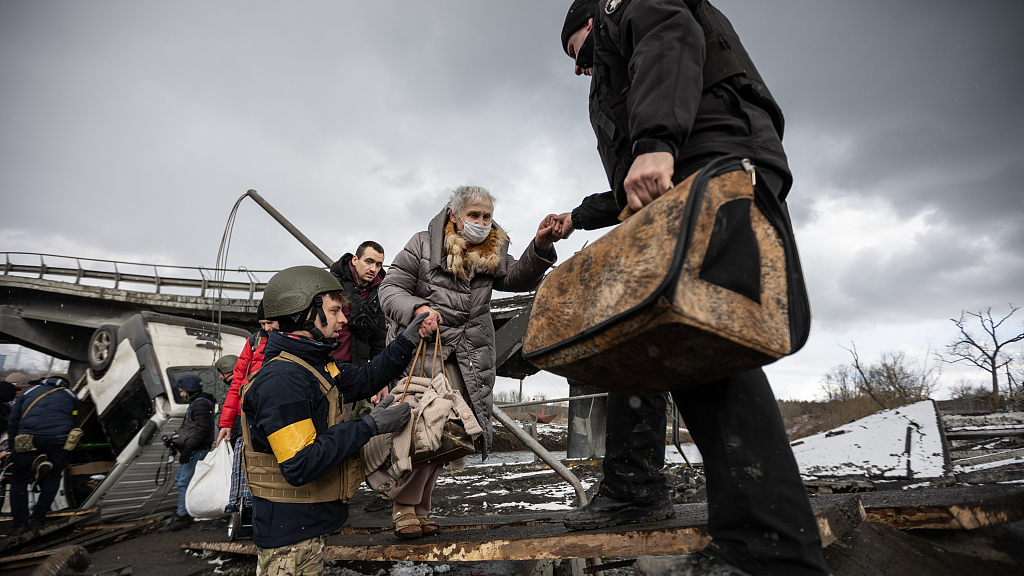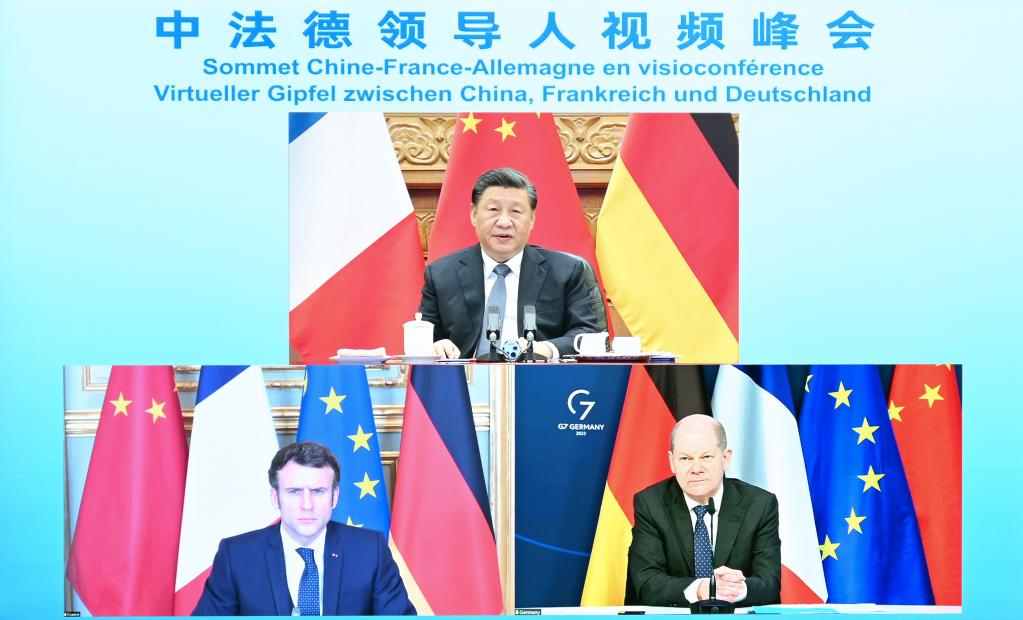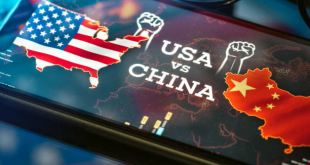Published: March 13,2022
By William Jones

Ukrainians cross an improvised path along a destroyed bridge as residents continue to flee the city of Irpin, Ukraine, March 8, 2022. /CFP
China has recently initiated a serious diplomatic effort to use its influence to help bring the crisis in Ukraine to a peaceful resolution. China is in a unique position to launch such an effort. Its relationship with Russia is better than ever before, and the two countries’ agreement on substantive global issues was featured in the February 4 joint statement signed by both President Xi Jinping and President Vladimir Putin. At the same time, China enjoys friendly relations with Ukraine, and China’s efforts have been welcomed by the Ukrainian foreign minister.
China’s intent was also underlined by Foreign Minister Wang Yi in his press conference on March 7. This was followed by a virtual meeting attended by Chinese President Xi Jinping and French President Emmanuel Macron and German Chancellor Olaf Scholz. During the meeting, President Xi said that China was willing to work together with them in bringing the conflict to a close.
This head-of-state diplomacy with two of the most important European countries is critical. While both France and Germany are members of NATO and therefore joining some of the organization’s efforts to provide Ukraine with more weaponry (which will no doubt prolong hostilities), the two leaders have also made a point of maintaining contact with President Putin, refusing to allow him to be totally isolated, as seems to be the intent of the Biden administration. The two European countries, particularly Germany, also have closer economic ties with Russia. The effect of U.S. sanctions against Russia, which will seriously upset the global economy, will hit them the hardest.
At the same time, both the German and French leaders seem to understand that the root cause of the conflict is linked to the steady push to expand NATO right up to Russia’s borders. They no doubt find themselves in some agreement with the view that Russia’s demands for its own security must also be considered.

Chinese President Xi Jinping attends a video summit with French President Emmanuel Macron and German Chancellor Olaf Scholz in Beijing, capital of China, March 8, 2022. /Xinhua
This does not seem to be the attitude of the Biden administration, which refuses to admit any responsibility for the dangerous developments in Ukraine, simply viewing Russia’s military action as unprovoked aggression. Acknowledging these subtle differences in interpretation could well be part of the means to finding a pathway to a diplomatic solution.
China may also have an opportunity to emphasize the necessity for reforming the global governance system. The outbreak of military conflict in Europe clearly shows that the existing system is not working. The Biden administration’s attempt to organize the world into an “alliance of democracies” (or at least “democracies” prepared to accept U.S. fiat) against the rest of the world, including China and Russia, has created a situation that potentially goes beyond the divisions of the Cold War.
The present attempt to demonize everything “Russian,” including banning a Russian opera star from the Metropolitan Opera in New York and a conductor from the Munich Philharmonic orchestra for supporting Putin, was never an element during the Cold War. At that time, cultural exchanges were considered outside the political arena. Scientists in almost all fields, including space exploration, cooperated despite political tensions.
The divisions currently promoted by the Biden administration reflect a frenetic attempt to reassert its hegemonic role in Europe as well as in Asia. They will also cause significant damage to the global economy and a post-COVID-19 recovery. The interminable “sanctions regime” aimed to collapse the Russian economy could even be the detonator for a global financial crisis far greater than in 2008. The rapid rise in the cost of energy and, subsequently, the cost of food, will set off an inflationary spiral that could bring the already fragile global financial system to its knees.
The world does need a negotiated peace in Ukraine. But just as important is the need for fundamental reform of the global governance system, which lay at the basis of the developments in Ukraine. In that respect, China, with its emphasis on making the world a “community of shared future,” has an important role to play in resolving both of these problems.
William Jones is the former White House correspondent for Executive Intelligence Review and a non-resident Fellow of the Chongyang Institute for Financial Studies, Renmin University of China.
 Africa -China Review Africa -China Cooperation and Transformation
Africa -China Review Africa -China Cooperation and Transformation
